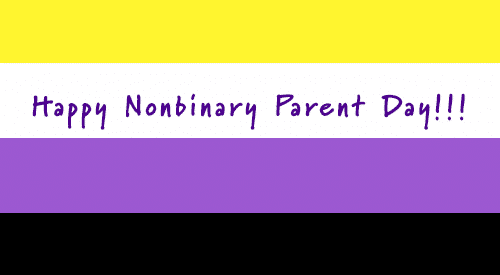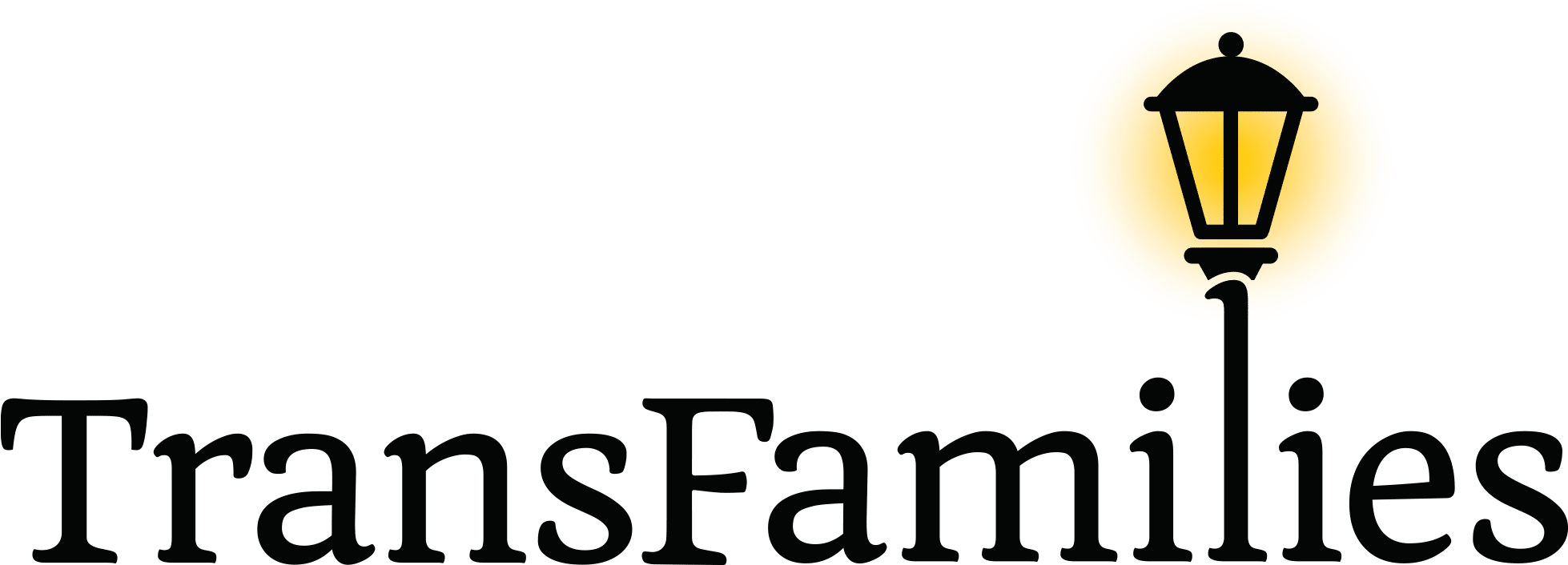Happy Nonbinary Parents Day!

It recent years, groups have finally recognized that Mother’s Day or Father’s Day leave a lot of folks out. Today is a day we celebrate all of the Nonbinary Parents out there. And while Trans Families has a mission of supporting parents of transgender, nonbinary, and gender non-conforming children, you know that transgender parents can have transgender kids, right?
In fact, in a recent blog post, one of our very own Trans Families staff members, group facilitator, and all-around cool parent Rachel wrote about their experience growing up, hearing the term “nonbinary” for the first time, and finally having the language to describe exactly who they are. What a wonderful gift it is to have language that feels right and can help others understand you better.
If you read Revel’s blog post and wanted to learn even more — maybe because you are seeing their experience reflected in your own child’s — here are a few others good resources:
- Hear directly from 9 nonbinary young people about what their gender identity (their Me-Gender) means to them.
- Now that you have a better grasp, dive deeper to learn 9 things people get wrong about what it means to be nonbinary.
- With debates about transgender students’ participation in sports and bills being introduced across the country to legislate sports based on birth certificate gender markers, where does that leave nonbinary athletes? This article is a great look into how much more nuanced those conversations should be.
- Ready to help a child understand a nonbinary parent? “My Maddy” is a lovely book that will answer those questions with examples of other “in-between” things. “Most mommies are girls. Most daddies are boys. But lots of parents are like my Maddy. My Maddy has hazel eyes which are not brown or green. And my Maddy likes sporks because they are not quite a spoon or a fork. The best things in the world are not one thing or the other. They are something in between and entirely their own.”
As the young author who conducted the interviews with other young people cited above says, “To be non-binary can be as simple as deciding to live one’s life as free and true to oneself as possible. But for each individual, it can mean something much more personal. … Living openly as non-binary is a statement made to society that says we can be more than what we were told to be.”
That is certainly worth celebrating!
